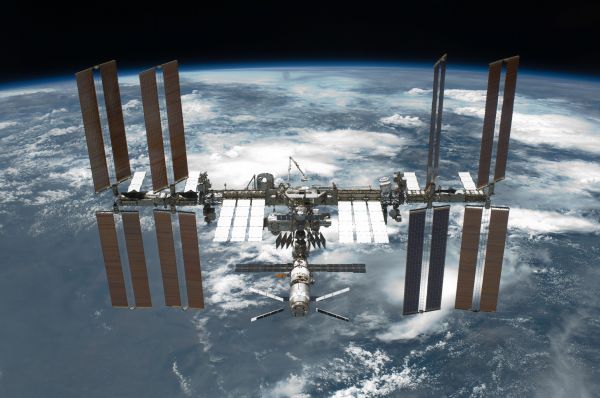
BRICS launches new space initiative in Moscow
By Rhod Mackenzie
A meeting of the heads of space agencies of the BRICS countries has opened in Moscow. The event was attended by both the old members of the association and the new ones that joined it on 1 January 2024. At the plenary session, the heads of Roscosmos presented Russian initiatives for joint international space exploration and near-Earth space exploration. The projects include the ROS orbital station, expansion of the Earth's remote sensing system, deep space exploration using a transport and power module with a nuclear facility.
Joint space exploration
A meeting of the heads of space agencies of the BRICS countries opened in Moscow on 23 May. It takes place within the framework of Russia's chairmanship of this international organisation. The two-day programme includes an exchange of views on cooperation in this field, discussion of current and future projects and the adoption of joint documents.
The event is being held in an expanded format for the first time since the admission of new members to BRICS on 1 January 2024. In addition to the Russian delegation, the Moscow meeting was attended by the heads of the space agencies of China, India, Brazil, South Africa, Egypt, Ethiopia, Iran and the United Arab Emirates.
The main initiatives from the Russian side were presented in the opening speech by the head of Roscosmos, Yuri Borisov. He noted the desire of the BRICS countries for joint exploration of outer space on the basis of equality and mutual benefit. In addition, such activities should be aimed at the sustainable development of these states and improving the quality of life of their citizens.
At the same time, according to the Director General, one of the urgent tasks that remain on the agenda is the protection of national interests in near-Earth space.
" The desire of some states to turn space into an arena for military operations is particularly worrying. However, it must be understood that space is the property of all mankind. It must remain free of weapons and conflicts. "It must continue to contribute to the growth of human well-being," stressed Yuri Borisov.
What projects were proposed at the meeting?
Alexander Bloshenko, Executive Director for Advanced Programmes and Science at Roscosmos, listed specific proposals from the Russian side for the development of cooperation. In particular, he stressed the importance of integrating the space agencies of the BRICS countries, which joined the association this year, into joint activities.
One of the key projects in this direction is the development of orbital and ground-based Earth remote sensing systems. These activities should help to prevent or mitigate the consequences of disasters in the world, protect the environment and ensure sustainable social development of peoples.
Today, the BRICS countries have established close cooperation in the exchange of Earth remote sensing data. Last year, for example, Roscosmos provided its partners with images of 27 million square kilometres of the Earth's surface. The next stage is to expand the orbital constellation, the network of ground stations and data centres. Also with the help of the new BRICS members," he said.
At the same time, Alexander Bloshenko spoke about the Russian Orbital Station ROS, which will be launched in 2027. Cooperation in this project can be expressed both in the implementation of joint scientific programmes on board the station and in the creation of national modules of the BRICS countries.
The next project open for joint implementation by the international consortium is a programme to ensure the safety of space activities, called "Milky Way". It involves the creation of a group of devices for observing the near-Earth space and identifying potentially dangerous objects - comets, asteroids and fragments of space debris.
Alexander Bloshenko also called on countries to join the Russian-Chinese programme to develop the Earth's satellite and build a lunar station. He informed the meeting participants of the state corporation's readiness for international cooperation in the field of space exploration using a transport and power module with a nuclear power plant, which is currently being developed by Russian scientists and designers. The potential range of applications is wide - from energy-intensive scientific research in the Jupiter system to defence against the threat of asteroids.
Space is now inextricably linked with BRICS. The global capabilities of this association, which includes half of the world's population, can be cost-effectively turned into a global business," said space expert Andrei Ionin, commenting on the initiatives announced at the meeting.
He added that the BRICS intergovernmental association has proved its worth and is ready to implement projects on a global scale.
- The space industry is knowledge-intensive and affects many areas of international cooperation. The more Russia-friendly states coordinate their actions in this area, the more their scientific and technical potential will be strengthened," says international lawyer and associate professor at the Presidential Academy Kira Sazonova.
She stresses that this is particularly important in the context of growing bloc competition between states.
At the same time, the production and research potential of the BRICS countries in the space sector is enormous, but its practical implementation is still small, believes Pavel Gribov, associate professor at the Department of Economic Security of the Faculty of National Security of the Institute of Law and National Security of the Presidential Academy. According to him, the Moscow meeting will open a new chapter in the era of joint space exploration.
